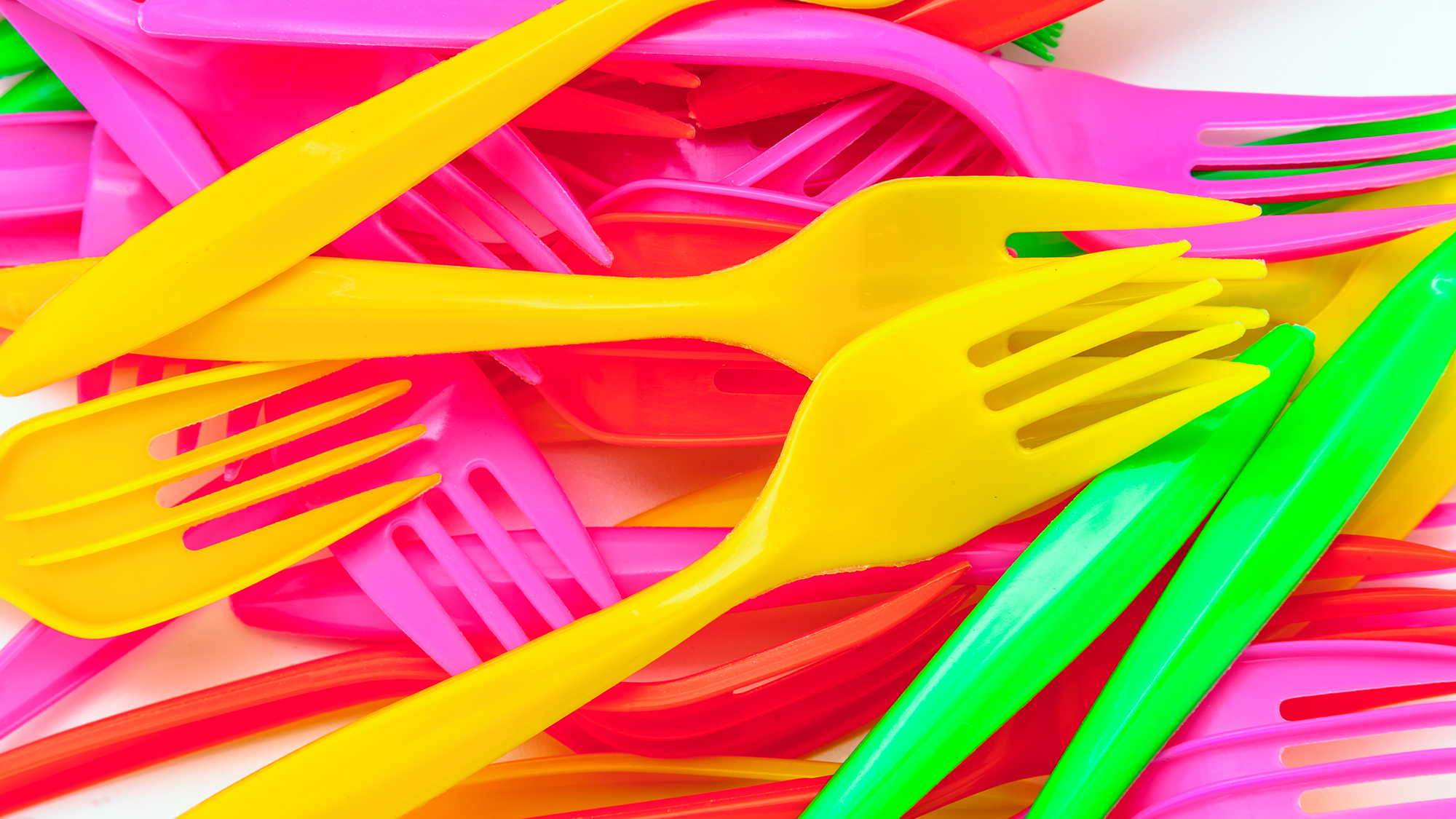

Food delivery and take-out has had a renaissance in the past few years. Not only did it provide an economic lifeline to the restaurants amid the COVID-19 pandemic, but it also kept people safe and fed by limiting exposure to the virus. However, our to-go favorites often come with a huge side of waste. In 2021, over 400 million metric tons of plastic waste of all kinds was produced worldwide and the United States uses more than 36 billion plastic utensils every year. Plastic pollution is also expected to outpace the efforts to reduce waste and could even outpace coal’s greenhouse gas emissions by 2030.
[Related: How to make your takeout order less wasteful.]
Plastic cutlery from delivery orders presents new challenges, but a study published September 7 in the journal Science found that the “green nudges” that encourage customers to skip asking for cutlery with take-out orders were very successful. They could even be a new policy tool in reducing single-use waste.
“Few policies target plastic waste production at the consumer level, except charges on plastic bags,” co-author and EPIC-China’s research director and Hong Kong University Business School economist Guojun He said in the statement. “Our findings show that simple nudges can make a big difference in changing consumers’ behaviors and could become a tool for policymakers as they confront the immense challenge of plastic waste.”
According to the team, reducing single-use cutlery waste in the food-delivery industry is particularly important in China as the country is the world’s largest producer and consumer of single-use cutlery. Over 540 million Chinese citizens were active users of food-delivery services as of 2019, consuming more than 50 million sets of single-use cutlery per day. In an effort to reduce waste, policy-makers set a target of reducing single-use cutlery usage in food deliveries by 30 percent by 2025.
For the study, the team worked with Chinese e-commerce giant Alibaba’s online food-ordering platform called Eleme. The platform is China’s second largest food-delivery company, with more than 753 million users last year, and is similar to DoorDash and Uber Eats in the United States. The team evaluated the effectiveness of Alibaba’s green nudges to reduce single-use cutlery consumption. These nudges included switching the default selection on the platform to “no cutlery” and including green points as rewards for not using the cutlery. Green points could then be redeemed to plant a tree under the customer’s name (but that’s a whole other can of worms).
They studied each user’s monthly food-ordering history for two years through 2019 to 2021 in 10 major Chinese cities. Of these cities, Beijing, Shanghai, and Tianjin had green nudges, while Qingdao, Xi’an, Guangzhou, Nanjing, Hangzhou, Wuhan, and Chengdu served as control cities without green nudges. They then randomly sampled about 200,000 active users who had placed at least one order between 2019 and 2020.
[Related: Are reusable takeout boxes worth the resources needed to make them?]
They found that changing the default to “no cutlery” and rewarding consumers with green points increased the share of no-cutlery orders by 648 percent, all without affecting Alibaba’s revenue. If these green nudges were applied to all of China, the team found that more than 21.75 billion sets of single-use cutlery could be saved annually, eliminating 3.26 million metric tons of plastic waste. It could also potentially save 5.44 million trees annually since it would reduce the need for wooden chopsticks.
“Other food delivery platforms, such as UberEats and DoorDash, could try similar nudges to reduce cutlery consumption and plastic waste globally,” said He.
In other places in the world, efforts to trim down on unnecessary plastic have sprouted as well. In June, the “Skip the Stuff” rule went into effect in New York City, which aims to reduce single-use cutlery and condiments. Restaurants have until June 30, 2024 to comply before risking potential fines. The United Kingdom has also set a ban on single-use plastic cutlery set to go into effect in October. The European Union banned single-use cutlery among other types of plastic pollution in July 2021.
